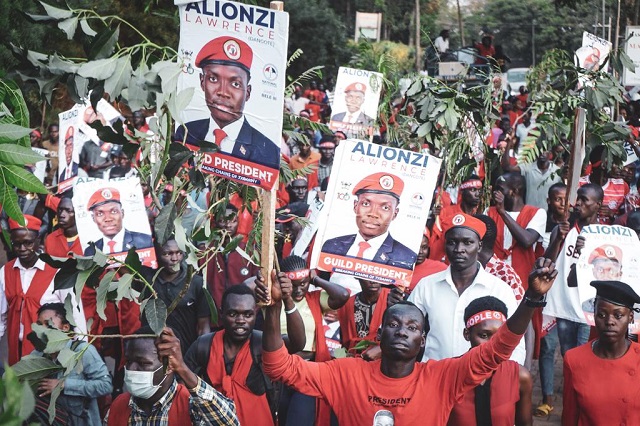
Kampala, Uganda | THE INDEPENDENT | On June 15th, 2022, Makerere University Council resolved to suspend the guild elections following chaotic campaigns that led to the death of Bewotti Batungura, a law student from Uganda Christian University-UCU.
Batungura bled to death after being pierced with a broken bottle in the neck and stomach during clashes between Forum for Democratic Change (FDC) and National Unity Platform (NUP) supporters near the Impis rugby grounds during the campaign.
It is alleged that Batungura had joined his FDC counterparts at Makerere university to rally support for his old-time friend Justus Tukamushaba, who was also running on the opposition party ticket. According to police investigations, Betungura was a member of the Northcote hall Revolutionary Army-NRA Brigade, which was in charge of Tukamushaba’s protection.
On the other hand, the National Unity Platform-NUP candidate, Alionzi Lawrence Dangote was being guarded by the Rat Guard Brigade-RGB. The clashes between the opposition supporters prompted the University Council, to suspend the guild caretaker government, guild elections, and structures.
The council also banned access to the common room. The clashes also raised serious questions about the role and influence of political parties on guild elections. During the suspended Makerere University guild presidential race, almost all major political parties fronted candidates. This is not any different from the majority of other universities nationwide, where the candidates backed by political parties print posters painted with their respective party colors and symbols.
The candidates also invite leaders from their respective political parties to campaign for them and provide logistical support and finances. Apart from Uganda Christian University-UCU in Mukono and Islamic University in Uganda, where political parties have very minimal influence in guild politics, the majority of universities allow candidates to openly disclose their political party affiliation.
Yusuf Kiranda, the Makerere university secretary explains that the university has been trying to provide a free political space for all students to run for the guild leadership regardless of their political affiliations.
“But, he says evidence shows that some of these identities tend to override the fundamental identity, which is being a student,” Kiranda said. He says that a six-member committee appointed on Friday will investigate all the matters related to elections and make the necessary recommendation.
Uganda Radio Network-URN spoke to Asuman Basalirwa, the former Makerere University Guild President for the 2000-2001 academic year about political party influence in the guild elections. He supported the involvement of political parties in University politics with some limitations, saying they play a key role in training future leaders.
“You can’t disengage parties from university politics. Maybe the level of engagement should be limited to providing logistical support, training the students and leaders in public speaking, conflict resolution, writing campaign manifestos, and vote searching/protection skills,” Basalirwa said.
Adding that, “Parties shouldn’t go to universities with top party leaders to make rallies and address gatherings. That should be left to the students themselves. However, students should be free to identify with parties of their choice because universities are good recruitment grounds for the youth leagues especially.”
Fred Mukasa Mbidde, also a former Guild President at Makerere University from 2001 to 2002 agrees. He explained that although University politics is commonly characterized by violence, none of the political party leaders can influence violence in elections.
Mbidde believes that University students are always a minute away from starting their careers, which puts them in the best position to engage in political party activities.
Isiah Mpiirwomugisha, the candidate for the Alliance of the National Transformation-ANT party in the suspended guild polls, says that despite being attached to a political party; he does not agree with the idea of involving political parties in University politics.
Mpiirwomugisha believes that political parties play a key role in dividing students, which frustrates their fight for a common cause. He also argues that the influence of political parties ends up bringing incompetent leaders simply because they come from popular parties.
Contrary to Mpiirwomugisha, John Baptist Ahumuza, a third-year student of Social science and Guild Representative of his school, explains that University students should actively engage in national politics because that is where the leaders of the country are nurtured from.
*****
URN
The post Should political parties continue influencing University politics? appeared first on The Independent Uganda:.
from The Independent Uganda: https://ift.tt/skF3lgz
0 Comments